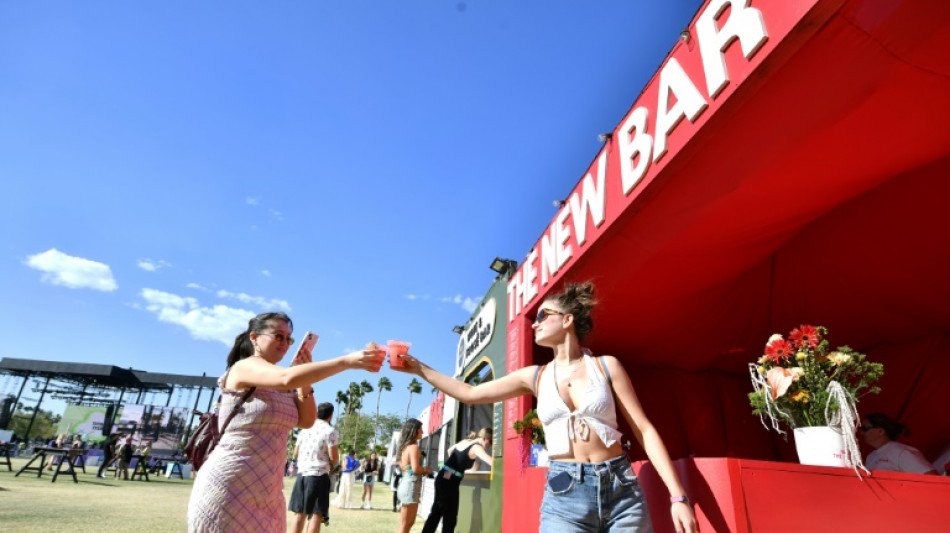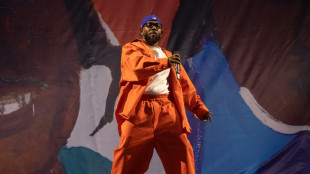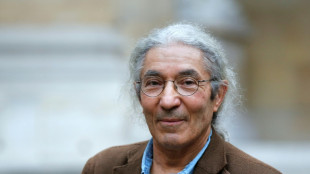

Coachella revelers partying with less booze find festive options
Deborah Biegaj has been coming to Coachella for about a decade, and long thought little of drinking heavily at the mammoth California desert festival -- it's just what you did.
But these days, she and her partner Piotr are imbibing less booze: "I felt like drinking more took away from the festival experience," she says.
"I feel like now I'm enjoying myself a lot more this year, not drinking as much."
The Biegajs aren't alone: alcohol consumption among millennials and Gen-Z is down, a number of recent studies have shown, for a variety of reasons including concern over mental and physical health.
It's a life choice made easier by the growing availability of non-alcoholic spirits, beer and wine that allow revelers to feel festive without the hangover.
The New Bar, a Los Angeles-based shop specializing in non-alcoholic drinks and spirits, first partnered with Coachella last year, the first of its kind to do so.
It returned for the 2024 event, and for the first time later this month will also have a presence at Stagecoach, the high-profile country festival that follows Coachella's two weekends of music and partying, and is traditionally even sloshier.
Coachella last year created a specific dry camping area to support festival-goers -- many spend the nights in tents on grounds neighboring the stages -- looking to stay sober.
And there's been a trend in recent years of holding Alcoholics Anonymous meetings on the grounds of festivals like Coachella as well as New York's Governors Ball.
But some people are drinking less at Coachella simply because it can be more enjoyable than slowly pickling in the hot desert sun, where dehydration is a risk and the days are long.
On offer at The New Bar are mocktails that at first glance look exactly like their tipsier counterparts -- a "Golden Hour Marg" includes de-alcoholized agave spirit, prickly pear syrup and lime juice, for example, and is garnished with a marigold.
"Psychologically, holding a beverage that looks and feels similar to what folks who may be consuming alcohol around you have -- that has an impact on the way you show up in that space," New Bar founder Brianda Gonzalez told AFP.
- Alcohol 'less glamorized' -
Gonzalez grew up on Catalina Island, off the coast of Los Angeles, an area driven by the hospitality economy.
She said she grew up working in food and beverage industries from a young age, with her father who was a bartender.
But some health issues required him to cut out alcohol: "Being that we're both really big food and beverage people -- we have big Mexican parties -- that was pretty tough," Gonzalez said.
"So that was originally when I started looking into the non-alcoholic category as a potential fun way for us to keep those traditions, in a way that was more accessible and less damaging to him."
Gonzalez said her search for products turned out better than she expected, and "truly made me believe I could never have alcohol again and be fine."
She opened The New Bar in 2022, and now has physical shops in both Venice Beach and West Hollywood, with plans to expand to San Francisco. Products are also available online.
Gonzalez sees herself as offering something for everyone -- perhaps people are interested because they're fully sober, but perhaps they're just looking to feel less lethargic.
"I felt like this concept works if people are in really fun environments where alcohol typically tends to be seen as a given," she said.
Alcohol is "a little less glamorized to the younger consumer," she continued, noting that Gen-Z in particular is famously focused on their mental wellness.
"Consuming alcohol is pretty clearly tied to higher anxiety and depression, and that's just not quite the emotion most people are seeking," she said.
For Piotr Biegaj, 41, it's also about feeling physically capable; he's been getting into cycling, and found that drinking inhibited his progress.
Training "is like two steps forward, and every time I drink it's like one step back, and it takes so much energy to take those two steps forward" again, he said.
But both he and Deborah said that drinking less doesn't mean they just want water or soda."
"Having really good alternatives makes it easier, because the drinking of something is the kind of habitual thing that you do, Piotr Biegaj said, adding that he's been getting into non-alcoholic beers and their fridge is stocked with them.
"You're not drinking, but it scratches the itch if you're wanting another beer," he said, the nearby DJ set dropping into a earth-shaking beat.
"I don't feel like I miss anything."
W.P.Walsh--NG



